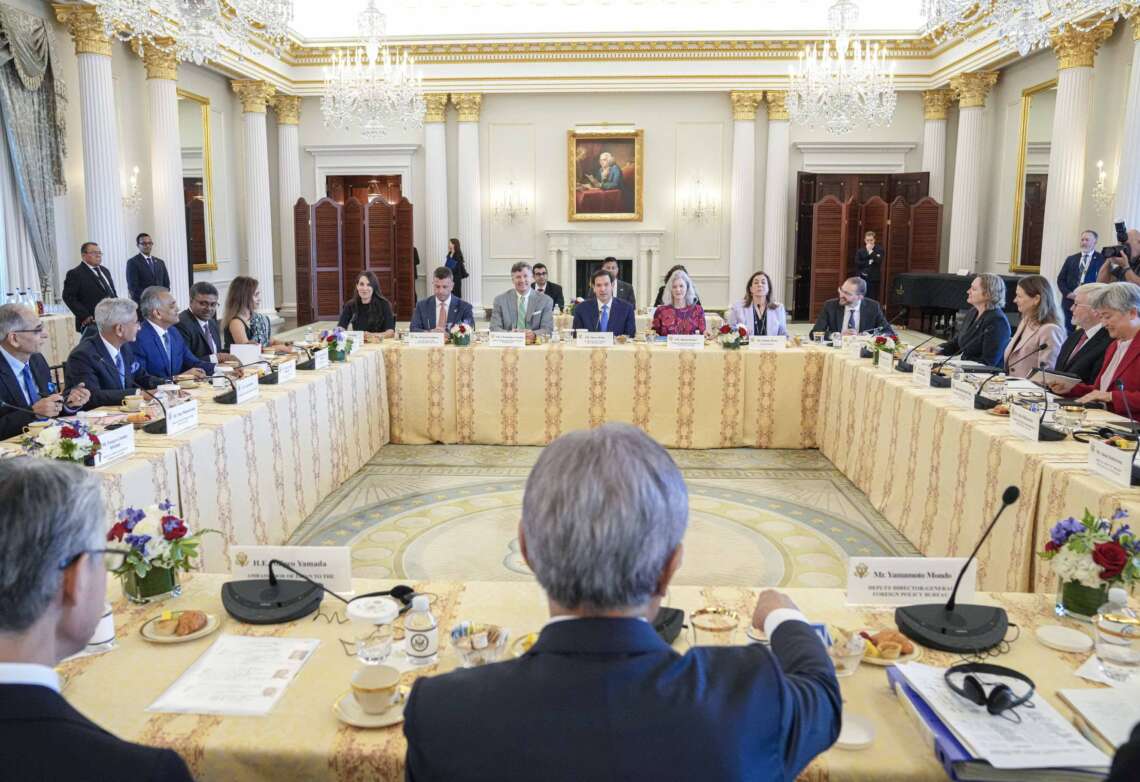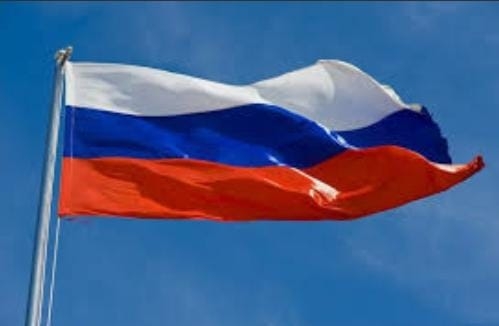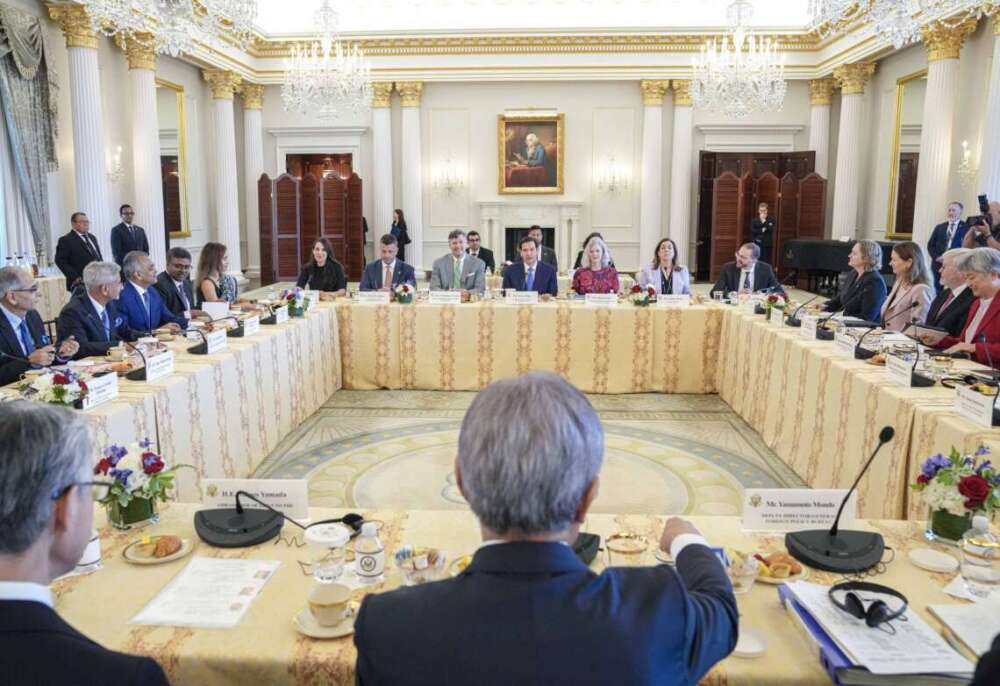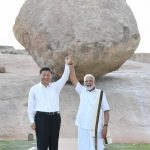The US has been funnelling funds to war-torn Ukraine in military aid, humanitarian assistance and building up opinion against Russia among the NATO allies…reports Asian Lite News
The United States is fast losing out on global opinion, especially in countries from the south for its opinion, views or policies as Russia and China band together to get other countries to align with their views.
US media reports claimed that the analysis is based on the situational awareness of the US, which is increasingly at odds with both the world’s other major nuclear-armed countries as Russia continues its war in Ukraine.
The analysis is also based on the fact that the growth in China’s might see it as rivalling the United States as the preeminent military power in East Asia and potentially beyond.
Both countries are veto-holding members of the UN Security Council and have consistently challenged the US dominance. Some call it the universal policeman attitude that has emerged after the Cold War when Ronald Regan as the President of US and Russian President Mikhael Gorbachev initiated the SALT negotiations.
The analysis is based on a recent analysis of three decades of voting patterns in the United Nations General Assembly; Newsweek quoted experts in a special feature on the declining power of the US on world powers.
“Russia and China have gained the affinity of swathes of the international community, particularly in the Global South,” Dmitriy Nurullayev, assistant professor at the College of Applied Science & Tech at the University of Arizona, was quoted by the Newsweek as saying.
Nurullayev assimilated data of voting patterns of countries at the United Nations to make his analysis with the period for sampling chosen between 1991 and 2020, involving some 1,500 global issues.
Mihaela Papa of Tufts University, who assisted Nurullayev in the study, found that Russia and China had disagreed with the US in almost all the 1.500 cases.
Their view prevailed 86 per cent of the time. Alignment with the United States was greater — at 36 per cent — when the analysis considered only the 211 resolutions that the US State Department had designated as being important to national interests, Nurullayev pointed out in a follow-up article.
In 1997, China and Russia adopted the Joint Declaration on a Multipolar World and the Establishment of a new International Order, Newsweek pointed out, saying their commitment to this initiative was based on the principles of respect of sovereignty and every country’s right to choose independently its own path of development.
In February 2022, Moscow and Beijing in an apparent reference to the US intervention on the Russia-Ukraine war in a joint statement said that countries should not impose their own “democratic standards” on others.
The US has been funnelling funds to war-torn Ukraine in military aid, humanitarian assistance and building up opinion against Russia among the NATO allies.
China and Russia’s ability to influence or counter US opinion on global issues has been enhanced by membership in groups such as the BRICS alliance, the Shanghai Cooperation Organization and the G-77 group of emerging economies, Nurullayev opined.
BRICS’ founders were Brazil, Russia, India, China and South Africa, but in recent times the founders agreed to the membership of Argentina, Egypt, Ethiopia, Iran, Saudi Arabia and the United Arab Emirates from 2024, thus expanding their footprint across the globe.
The Shanghai Cooperation Organization has China and Russia with India, Pakistan and central Asian countries as members. The G-77 members spread are across Asia, Africa and Latin America.
“Membership in these soft-balancing institutions has a discernible effect on foreign policies of both authoritarian regimes and democracies. India, Brazil, and South Africa are all democratic states and yet tacitly support Russia over Ukraine,” he told Newsweek.
The US allies in the NATO military grouping were more likely to align with the US view, but time has tested this as it has weakened over time, when it actually came to issues involving the Middle East, the research said.
Neither the US State Department responded to a request for comment on the research by Nuurullayev and Mihaela Papa on their view of the US losing on global opinion. Nor did Chinese and Russian foreign ministries react to queries on the research findings. .
Nurullayev admitted that there was not enough data to explore voting trends since the start of the war in Ukraine in February 2022, but he opined that it would not change significantly, perhaps it may weaken Russia and strengthen China.
“There is, however, an opportunity for the United States. A realistic/sober policy would be to continue our support for Ukraine but not get entangled ourselves and to work with China to stop the war from escalating,” he said.
Even as the United States and its Western allies imposed sanctions on Russia for its invasion of Ukraine, Washington did not get the backing of India, which continues to import Russian oil, and many other countries in the Global South or even NATO member Turkey. These countries were resorting to the art of diplomatic balancing between US and Russia so as not to anger the latter. Particularly on issues of US military aid to Ukraine with military equipment while maintaining trade ties with Moscow.
An incline is being witnessed as not only Russia and China, but the world in general, is shifting to a more authoritarian direction. The Freedom House advocacy group in a study spanning 2006 to 2021, found that in 16 years more countries declined than rose on its index of freedom.
Washington should adopt a different approach more broadly. “The narrative that the U.S. is a declining power and China is a rising power is a bit over explored. Perhaps we should embrace the status of the underdog,” he said.
The United States has a lot to say about its economic prowess: Highly-skilled workforce, extremely favourable geographic location, high standards of living. Globally, the focus has to shift to more realistic and objectively beneficial tasks. “We should walk away from international state building and involuntary democracy building,” the research said.
“Instead, we should focus on strengthening our democratic institutions at home, creating a highly educated and sophisticated population at home and making America an attractive destination for both economic capital and intellectual capital. Internationally, we should focus on creating sustainable relations with our allies and work with China on issues of mutual interest such as climate change,” the researchers said.
ALSO READ-New attacks on Ukraine very close to NATO-member Romania’s border












